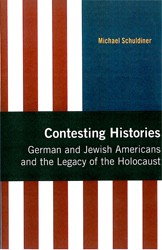In this well-researched and passionately argued book, Hasia Diner challenges the conventional view that postwar American Jewry showed little interest in the Holocaust until the 1960’s and, in fact, wanted to forget it rather than memorialize it. She maintains that nearly every historian, literary scholar, and cultural critic who has commented on American Jews in this period and their relationship to the Shoah, asserted with utter certainty that American Jews made little of the Holocaust, repressed it and did not make it an important part of their communal lives. Whether motivated by guilt, shame, fear, indifference, or the desire to assimilate, American Jews simply did not memorialize or focus on the Holocaust until the Eichmann trial in 1960 – 61 and Israel’s stunning victory in the Six Day War of 1967 made it socially and culturally acceptable to do so. Coming out of World War II, American Jews were too busy with the emergence of the State of Israel, the threats of the Cold War, moving to the suburbs, financing a synagoguebuilding boom and carving out their place in society to have room in their public culture for the tragedy of European Jewry.
Diner rejects this conventional view and claims that it is categorically false and based on thin evidence and gleaned from few sources. Uncovering a rich and varied trove of documentation — in literature, song, liturgy, public display, and many other forms, We Remember with Reverence and Love shows that American Jews were deeply engaged in memorializing the Holocaust in a multiplicity of ways and that it was a powerful element of Jewish life in postwar America. Whether in liturgy or pedagogy, in staged ceremonies or in the deliberations of Jewish organizations and in the activities of their youth groups, the tragedy of European Jewry was central to Jewish identity and activity. In this important book of scholarship and conviction, Diner attempts to revise our understanding of postwar American Jewry. She correctly challenges the conventional views on this topic, although her alternative narrative is also overdrawn to a degree, especially her assertions concerning what American Jews did and said concerning the “survivors,” the “refugees,” die geblibene (those left) in Yiddish, or the Displaced Persons, as they were variously referred to. Her claims here, challenged by solid research, raise doubts about the reliability of the overall thesis. I suspect the reality is somewhere between the denial and repression accepted by most and the active and productive engagement and advocacy suggested by Diner. A lively and controversial book, it is sure to spark debate and conversation for years to come. 2009 National Jewish Book Award Winner in American Jewish Studies.





